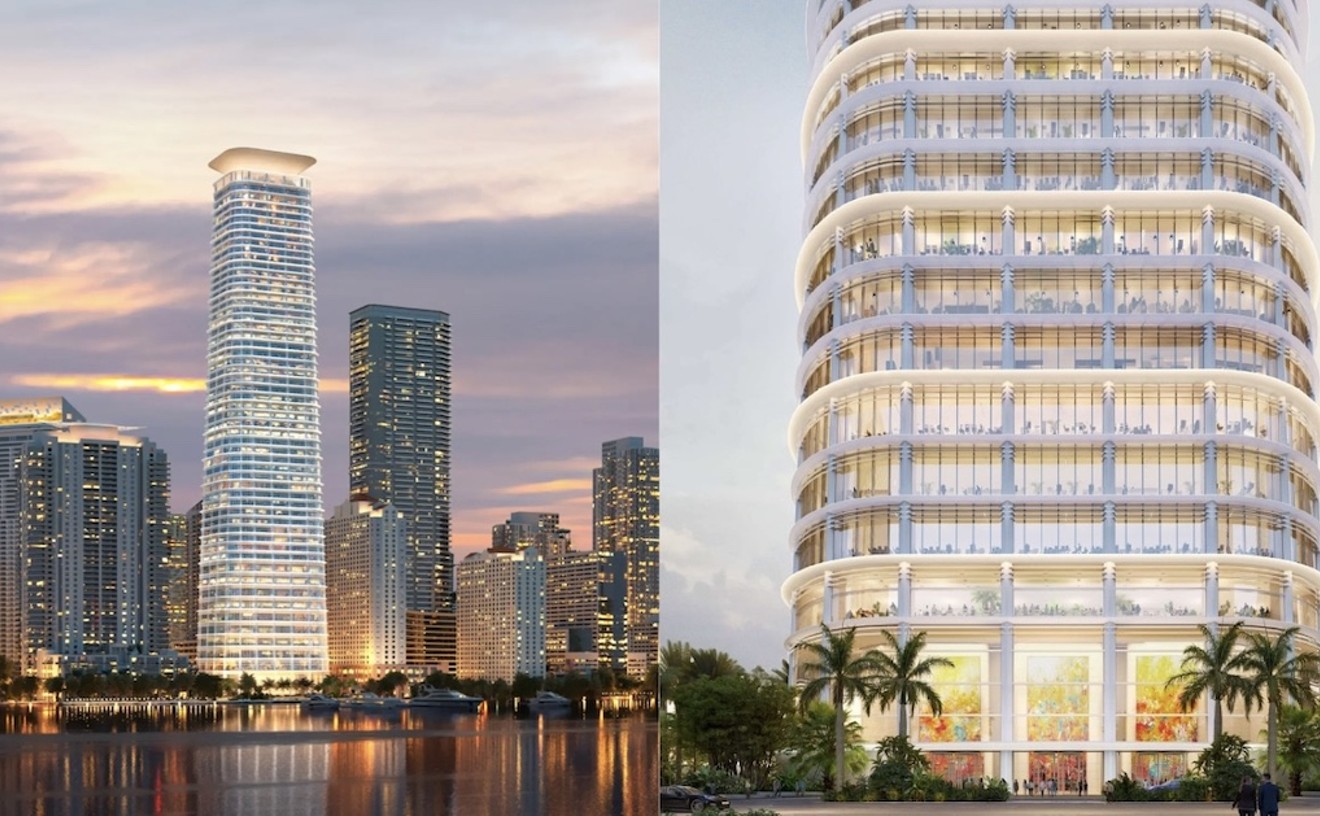After weeks of fiery protests and a contentious vote of support from the Miami-Dade County Commission, Mayor Carlos Gimenez's move to back Donald Trump's crackdown on sanctuary cities has been tossed out in court as unconstitutional. Miami-Dade Judge Milton Hirsch made the ruling Friday morning.
The challenge was brought by James Lacroix, a Haitian national who was picked up for traffic offenses and faced deportation if the county held him for federal immigration authorities.
"A federal agency wants Lacroix to be a federal prisoner, but demands that the county do the imprisoning on the federal government’s behalf," Hirsch wrote, citing a previous ruling by the late U.S. Supreme Court Justice Antonin Scalia. "That is a demand that the federal government is constitutionally prohibited from enforcing, and it is a demand with which the local government is constitutionally prohibited from complying."
In closing, Hirsch wrote, "We must protect our country from the problems associated with unregulated immigration. We must protect our country from a great many things, but from nothing so much as from the loss of our historic rights and liberties."
Miami Herald reporter David Ovalle filmed today's entire court appearance:
Four years ago, the Miami-Dade County Commission decided to hold for the feds only prisoners with felony convictions or those being sought on nonbondable offenses, mostly because the government wouldn't pay for the extra jail time. The county said it wouldn't hold any prisoners for Immigration and Customs Enforcement unless ICE reimbursed the county.
But in February, when President Trump threatened to pull aid from so-called sanctuary cities such Miami-Dade, Gimenez overturned that decision. (Gimenez had long maintained that Dade was not a "sanctuary," but an Obama-era Department of Justice memo labeled the county as such.) The mayor then faced massive protests, both at county hall and Miami International Airport, and a hunger strike by activists. The county commission eventually voted 9-3 to back Gimenez's move despite hundreds of complaints from residents at a February 17 commission meeting.
However, the county says it will appeal Judge Hirsch's ruling:
It is Miami-Dade County's position that immigration is a federal issue which should be handled in federal court. (1/2)
— Mike Hernández (@HernandezMA5) March 3, 2017
Reached via text message, the mayor's spokesperson, Mike Hernández, declined to elaborate further.Miami-Dade County is planning an immediate appeal to the Third District Court of Appeal. (2/2)
— Mike Hernández (@HernandezMA5) March 3, 2017
But the group of local activists united against Gimenez applauded the judge's ruling.
"The mayor and the Gimenez Nine can ignore the community, but they can't ignore the Constitution and the courts," Juan Cuba, the chair of the Miami-Dade Democratic Party, tells New Times.
But the labor and pro-immigration activists who mounted a weeks-long campaign against the order immediately celebrated the decision online. Tomas Kennedy, a prominent labor activist in town, quoted Martin Luther King Jr. (who himself paraphrased 19th-century transcendentalist Theodore Parker): "The arc of the moral universe is long," Kennedy wrote, "but it bends toward justice."
David McDougal, the regional director of the New Florida Majority, a Democratic activist group that aims to increase black and Latino participation in politics, said that "Judge Hirsch's decision echoes what over a hundred thirty-five diverse community residents, legal experts, spiritual leaders, and elected officials personally told Commissioners two weeks ago. This policy is wrong on so many grounds, but namely because it goes against the basic values of safety of our working families."
Likewise, Maria Rodriguez, the executive director of the Florida Immigrant Coalition, released a full statement via email:
“This policy is legally, morally, and financially wrong. Today’s ruling is aligned with a number of judges across the country that have found ICE detainer requests to be in violation of the 4th amendment and unconstitutional. This policy is dangerous and affects community members who have minor offenses, like driving without a license when they don't have access to one. This argument was brought up by the over 400 community members who flooded the county chambers on February 17th when the Miami-Dade commissioners decided to collaborate with Trump’s inhumane Deportation Force, putting immigrant families — and our county — at risk.”
Daniella Levine Cava, the county commission's most outspoken Democrat, is on vacation and could not be reached for comment.
But Judge Hirsch laid out a clear case as to why the county cannot hold federal prisoners such as Lacroix:
The present petition for writ of habeas corpus is, on its face, a simple matter to adjudicate. There are no criminal charges pending against Petitioner anywhere in Florida. There is no criminal sentence imposed on Petitioner anywhere in Florida. The Department has no desire to hold Petitioner in its custody, and Petitioner has no desire to be held in the custody of the Department. To the extent that the Department continues to hold Petitioner, it is because the Department has been rendered the cat’s paw of ICE, and ICE wishes Petitioner held. Thus the issue posed by the present motion is easily framed: If ICE’s conscription of the Department’s facilities and manpower is unconstitutional, the writ must issue and Petitioner must go free. If ICE’s conscription of the Department’s facilities and manpower is constitutional, the writ must be denied and Petitioner must remain in the actual custody of the Department – and the constructive custody of ICE – until such time as ICE sees fit to dispose of him.Though Hirsch wrote that the legality of ICE detainers themselves were not a matter of debate in this case (that "is a question that could be raised only in federal court," he wrote), the judge ruled it's not a state or local government's job to hold people for the federal government.
"The price would be the subjugation of state and local governments, the reduction of those
governments to mere satrapies of a central government of unlimited and illimitable power," Hirsch wrote. "The price would be the abandonment of the fundamental constitutional principle that 'The powers not delegated to the United States by the Constitution, nor prohibited by it to the States, are reserved to the States respectively, or to the people.'”
Here's the full order:















